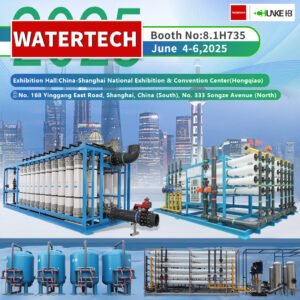Reverse Osmosis Water Treatment in Cameroon: A Sustainable Solution for Clean and Safe Drinking Water
CHUNKE projects of Reverse Osmosis Water Treatment in Cameroon including different types of water treatment systems.
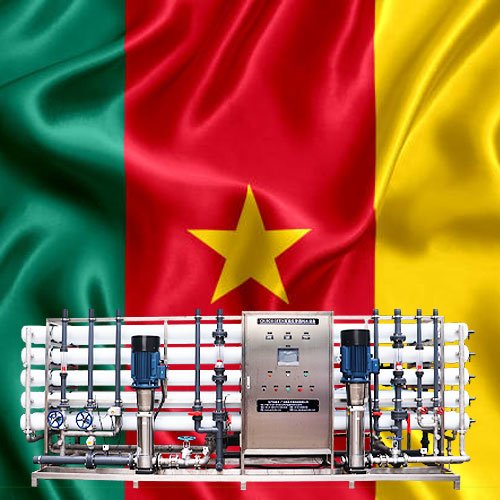
Cameroon, officially the Republic of Cameroon (French: République du Cameroun), is a country in west-central Africa. So, it shares boundaries with Nigeria to the west and north, Chad to the northeast, the Central African Republic to the east, and Equatorial Guinea, Gabon and the Republic of the Congo to the south. Its coastline lies on the Bight of Biafra, part of the Gulf of Guinea and the Atlantic Ocean. Due to its strategic position at the crossroads between West Africa and Central Africa, it has been categorized as being in both camps. Its nearly 27 million people speak 250 native languages and English or French or both.
Water Resources in Cameroon
Between 1971 and 2020, Cameroon renewable surface water remained stable at around 278.2 billion cubic meters per year.
- Renewable groundwater: 100 billion cubic meters per year
- Renewable water resources: 285.5 billion cubic meters per year
- Renewable water resources per capita: 10,666.4 cubic meters per year
- Dependency ratio: 3.6 %
Cameroon is blessed with abundant water resources, including surface water from rivers, lakes, and freshwater wetlands, as well as groundwater from boreholes and wells. According to the World Bank, Cameroon has a total renewable water resource of 285.5 cubic meters. However, the utilization and management of these water resources pose significant challenges.
Meanwhile, CHUNKE provides wide range of filtration and economical solutions based on the Cameroon’s water resources and our water treatment in Cameroon becomes more popular.
- Surface water is water from river, lake which can be treated using different methods, such as Ultrafiltration Systems, Brackish Water RO accordingly.
- Desalination can be used for water from ocean, or sea source, which can be treated using Sea Water Reverse Osmosis Systems; Desalination Systems
- Ground Water or brackish water is from water located in the pore space of soil and rock “Borehole well”, which can be treated using Reverse Osmosis Systems, Borehole Water Filtration Systems, Well Water Filtration Systems, Chemical Dosing, UV Water Sterilizer accordingly.
- Government water supply, which could have high level of hardness or high level of chlorine, can be treated with Water Softener System, Media Water Filters.
Surface Water Treatment
Surface water, such as rivers and lakes, can be a vital source of water for drinking, agriculture, and industrial purposes. To ensure the safety and quality of surface water, various water treatment methods can be employed. Hence, ultrafiltration systems and brackish water reverse osmosis (RO) systems are commonly used to treat surface water and remove impurities, contaminants, and pathogens.
Desalination for Coastal Areas
In coastal areas where seawater is the primary water source, desalination becomes crucial. So, desalination systems, particularly seawater reverse osmosis (SWRO) systems, are employed to remove salt and other impurities from seawater, making it safe for drinking and other uses. Hence, these systems utilize advanced membrane technology to filter out salt molecules and produce clean, freshwater.
Groundwater Treatment
Groundwater, obtained from boreholes and wells, is another important water source in Cameroon. However, groundwater can be contaminated with various pollutants, including chemicals, bacteria, and viruses. Meanwhile, reverse osmosis systems, chemical dosing, and UV water sterilizers are commonly used to treat groundwater and ensure its safety for consumption.
Government Water Supply Treatment
In many areas of Cameroon, the government provides water supply. However, these water sources may have high levels of hardness or chlorine, affecting the quality of the water. Water softener systems and media water filters are employed to remove excess minerals and chlorine, improving the taste and safety of the water.
Water Quality Challenges & Shortages in Cameroon
Cameroon, located in Central Africa, faces numerous water-related challenges, including limited access to safe drinking water, waterborne diseases, and inadequate sanitation facilities. With a growing population and urbanization, the demand for clean water continues to escalate. Traditional water treatment methods often fall short in meeting these demands, necessitating the exploration of innovative technologies like reverse osmosis.
Despite efforts to improve water treatment in Cameroon, several challenges need to be addressed to ensure access to clean and safe water for all. Poor management of water resources, inadequate political commitment, rapid urbanization, and legislative lapses are among the key challenges faced by the country.
To overcome these challenges and bring Cameroon closer to achieving the Millennium Development Goals (MDGs) for water and sanitation, several actions can be taken:
1. Bridging National Policies and Water Services
There is a need to align national water policies with water services to ensure effective implementation and management of water treatment systems. By integrating policies and services, the government can better regulate and monitor the quality of water supplied to the population.
2. Recognizing the Role of Civil Society Organizations
Civil society organizations (CSOs) play a crucial role in achieving the MDGs for water and sanitation. Their involvement in awareness campaigns, community engagement, and advocating for policy changes can significantly contribute to improving water treatment and access to clean water in Cameroon.
3. Developing a Council Water Resource Management Policy
Establishing a Council Water Resource Management Policy and Strategy (CWARMPS) can provide a framework for sustainable water resource management. This policy should consider the conservation and protection of water sources, as well as the efficient allocation and distribution of water for various purposes.
4. Institutional Framework for Water and Sanitation Sector
Creating a robust institutional framework for the water and sanitation sector is essential for effective governance and management. This includes establishing regulatory bodies, developing monitoring mechanisms, and promoting transparency and accountability in the sector.
5. Integrated Water Resources Management (IWRM) Plan
The completion and implementation of an Integrated Water Resources Management (IWRM) plan can help address the challenges associated with water treatment and resource management. This holistic approach considers the social, economic, and environmental aspects of water management and promotes sustainable practices.
Meanwhile, CHUNKE designs and produces water treatment systems that meet the World Health Organization requirements. So, our water treatment in Cameroon is suitable for drinking.
CHUNKE has over 15 years of experience as a global provider of B2B water treatment solutions for a variety of applications and industries, we offer a large selection of all types of reverse osmosis, ultrafiltration, electrodeionization and water treatment systems to meet your industrial needs accordingly. CHUNKE’s extensive global experience in engineering and manufacturing allows us to pre-engineer and customize water treatment and reverse osmosis systems to meet a wide range of customer requirements and specifications.
CHUNKE Projects of Water Treatment in Cameroon
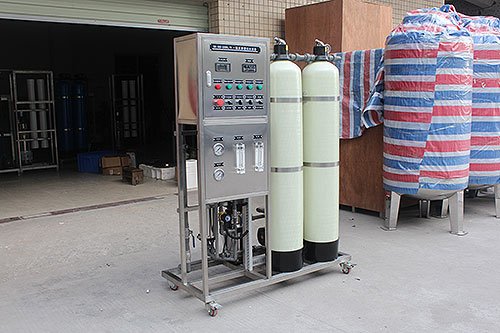
250LPH Reverse Osmosis System for Borehole
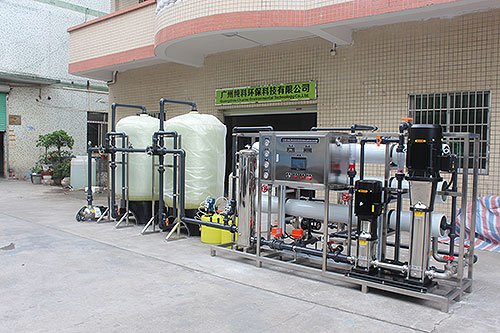
5000LPH Brackish Water Desalination System
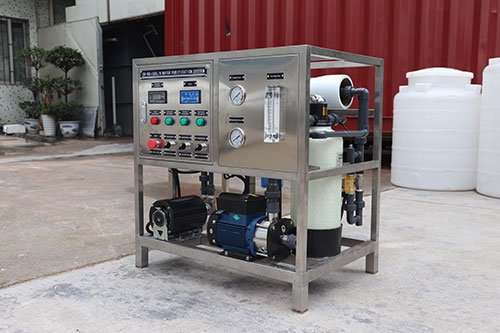
100LPH Reverse Osmosis System for Drinking
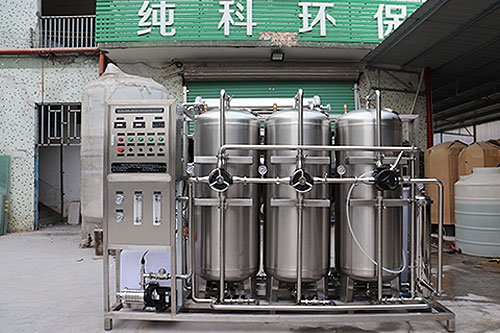
3000LPH RO Water Purifier for Hospital
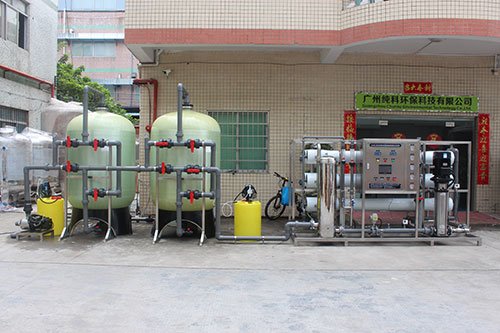
10000LPH Reverse Osmosis Plant for Water Bottling
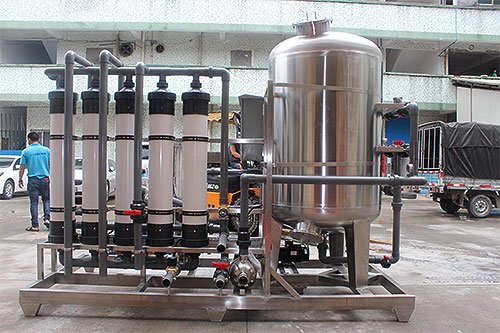
10000LPH Ultrafiltration System for River Water
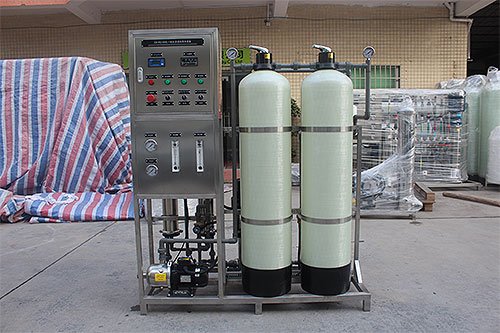
500LPH Reverse Osmosis System Manual
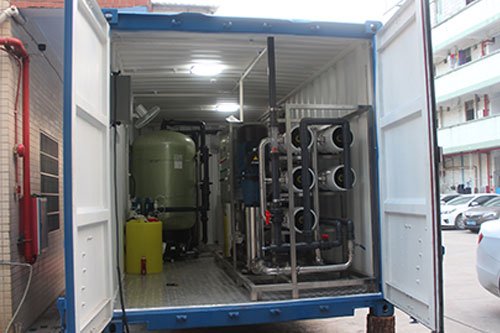
10TPH Containerized Water Treatment System
In Cameroon, Chunke Water Treatment, a leading supplier of reverse osmosis systems from China, has been actively involved in providing water treatment solutions. With over 20 years of industry experience, Chunke Water Treatment offers a wide range of reverse osmosis and water treatment systems tailored to meet the specific needs of industries and communities in Cameroon.
Chunke Water Treatment’s expertise in producing high-quality reverse osmosis systems has contributed to improving water treatment capabilities in Cameroon. Their reliable and efficient RO plants have been implemented in various projects across the country, ensuring access to clean and safe drinking water.

